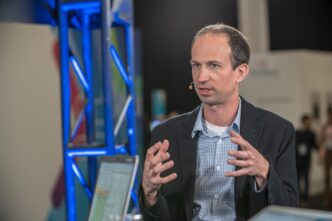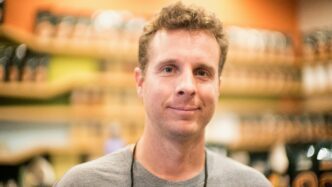Seattle-based Shelf Engine, a startup known for helping grocers cut food waste and optimize fresh inventory, has been acquired by Crisp. A New York retail data platform focused on consumer packaged goods. While the financial terms of the deal remain undisclosed. The move marks a significant moment in the intersection of AI-powered food tech and real-time retail analytics.
Founded in 2016 by Stefan Kalb and Bede Jordan, Shelf Engine developed a machine learning platform that simplifies grocery ordering. Particularly for perishable items like produce, dairy, and deli goods. Its goal was clear: help stores reduce food waste, save costs, and automate complex inventory decisions. Over the years, the startup raised over $60 million from major investors and scaled its platform to over 7,000 stores across the U.S.
“What started as a side project with my good friend Bede turned into a platform that’s now in thousands of stores, helping reduce millions of pounds of food waste,” Kalb shared in a LinkedIn post reflecting on the company’s journey. “It’s been 8 years of wild highs, humbling challenges, and so much growth.”
Crisp, also launched in 2016, recently raised $50 million to further develop its suite of tools that aggregate sales and inventory data for retailers, brands, and distributors. The company’s platform helps optimize supply chains for everyday products. Ranging from groceries to household items—by enabling data-driven decisions in real time. With Shelf Engine now under its wing, Crisp gains access to one of the most respected platforms tackling food waste through predictive ordering and fresh food logistics.
Kalb’s inspiration for Shelf Engine came from his earlier venture. Molly’s, a fresh food startup that supplied meals to hospitals, gyms, grocery stores, and offices. While building Molly’s, Kalb discovered how challenging it was to order the right amount of fresh ingredients. Leading to frequent waste and inefficiencies. This sparked the idea to develop AI-powered software that could better forecast inventory needs for fresh food.
Co-founder Bede Jordan, formerly a principal engineering lead at Microsoft’s HoloLens team,. Brought technical expertise to help bring the vision to life. Together, they built Shelf Engine into a mission-driven company. Combining machine learning with sustainability to help grocers manage perishables more efficiently.
Shelf Engine also attracted high-profile backers drawn to its environmental and social mission. In 2020, celebrities like Ellen DeGeneres, Portia de Rossi, Olympic gold medalist Shaun White, and musician Shawn Mendes joined the company’s investor list, praising its role in tackling food waste. The startup’s core promise—cutting spoilage while keeping shelves stocked—aligned well with both consumer values and operational efficiency.
Institutional investors included General Catalyst, GGV Capital, Initialized Capital, Soma Capital, Founders’ Co-op, Correlation Ventures, and 1984 Ventures, among others.
Despite its growth, the company wasn’t immune to the challenges plaguing startups. Shelf Engine went through layoffs in 2022, a reflection of broader economic pressures and recalibrations in the foodtech space. Still, its core platform and environmental mission remained strong, leading to strategic interest from buyers like Crisp.
With the Shelf Engine acquisition, Crisp now adds a key capability to its portfolio—fresh food forecasting. This strengthens its offering to retailers looking for smarter. AI-driven ordering tools that reduce shrink and optimize supply chains in real time.
As food waste continues to be a global concern—accounting for over 30% of all food produced—solutions like Shelf Engine’s are more critical than ever. By joining forces, Crisp and Shelf Engine are poised to help more grocers make better, more sustainable inventory decisions at scale.













